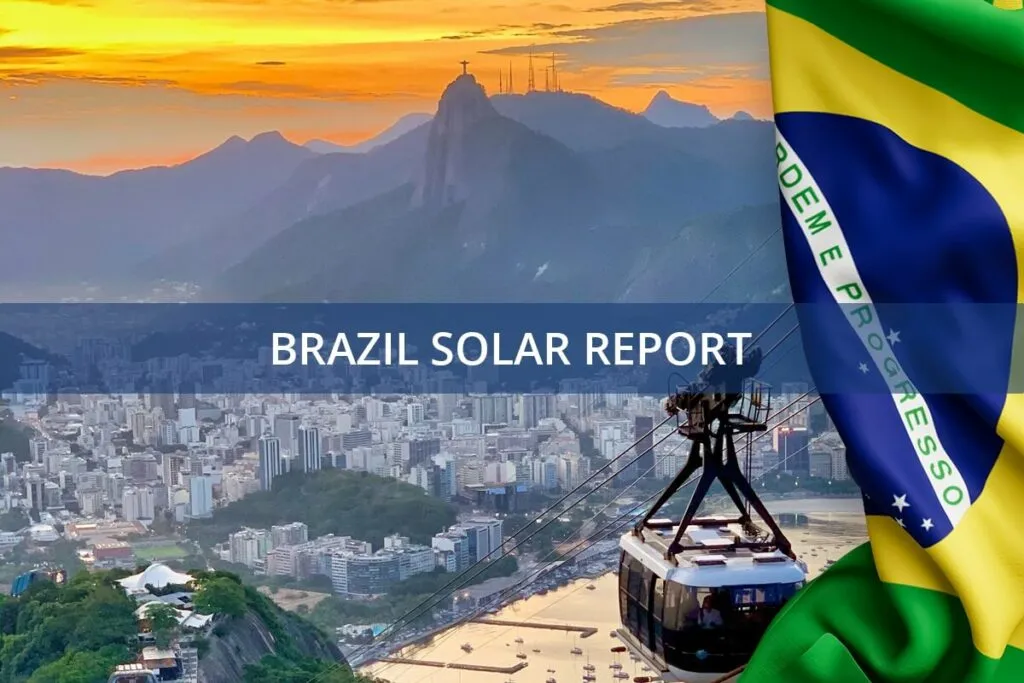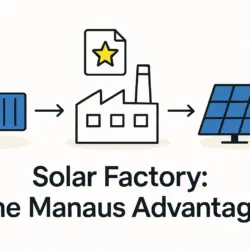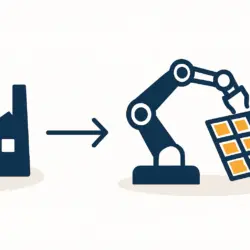In a landmark move, the International Energy Agency (IEA) has released its first-ever comprehensive 2025 policy review of Brazil, validating the nation’s energy strategy on the world stage. The report, launched during the COP30 climate conference in Belém, highlights the country’s established leadership in renewable energy and biofuels and charts a course toward its ambitious goal of achieving net zero emissions by 2050.
Brazil’s Commitment to a Clean Energy Future: The Brazil energy policy
The IEA’s review showcases Brazil’s deep commitment to sustainability, backed by tangible accomplishments. The report focuses on the country’s net zero goal and its established role as a global leader in clean energy. As IEA Executive Director Fatih Birol noted, Brazil is both “a major producer of oil and natural gas” and “a true low-carbon energy champion,” offering valuable lessons for the world.
This leadership is evident in its electricity grid, where an impressive 87% of generation comes from renewable sources. The country continues to set new benchmarks, with solar and wind power recently hitting a record 34% of the total electricity supply. This commitment to diversifying its energy mix with sources like wind, solar, and hydropower not only slashes carbon emissions but also significantly bolsters national energy security.
The report also commends Brazil’s focus on energy efficiency. Through the adoption of advanced technologies and energy-saving measures, the nation is actively working to reduce overall consumption and greenhouse gas emissions, building a more resilient and sustainable energy system for the future.
The Role of Biofuels in Brazil’s Energy Sector: A Brazil energy policy Perspective
Brazil’s pioneering work in biofuels is a cornerstone of its energy policy. As the world’s second-largest producer of ethanol, the country has cultivated a robust industry that plays a vital role in its energy mix. By utilizing renewable resources like sugarcane and soybeans, Brazil’s biofuels reduce greenhouse gas emissions and enhance its energy independence.
President Lula da Silva has highlighted the country’s unique strategy, noting, “Brazil has learned to use its oil wealth to finance the energy transition.” This is exemplified by the state-owned company Petrobras, which is evolving into a comprehensive energy company by investing in a wide range of alternative sources.
The IEA review underscores the importance of this model for other nations seeking to transition away from fossil fuels. Brazil’s deepening international cooperation, marked by its formal request for full IEA membership in 2025, further solidifies its role in addressing global energy challenges and sharing its expertise to combat climate change.
Challenges and Opportunities for Brazil’s Energy Sector: Analyzing Brazil energy policy
Despite its remarkable achievements, Brazil faces significant hurdles. The IEA review points to the urgent need for continued investment in renewable energy infrastructure, particularly to support the rapid growth of wind and solar power. While Brazil’s renewable potential is immense, fully harnessing it requires substantial capital.
The country’s solar sector is expanding at a breakneck pace. Projections show that Brazil is set to add a stunning 19.2 GW of solar capacity in 2025 alone, building on the recent achievement where its solar power capacity hit a 55 GW milestone. However, this rapid growth has created new challenges. The expansion of generation capacity is outpacing the development of new transmission lines, leading to significant renewable curtailment and energy losses.
Addressing this bottleneck is critical. Furthermore, scaling up domestic production to meet demand will require a deeper understanding of the basics of solar panel manufacturing and the associated supply chains for solar panel raw materials. A clear and consistent regulatory framework is needed to incentivize these investments, promote efficiency, and ensure a stable energy supply for all.
The Path to Net Zero Emissions: A Brazil energy policy Goal
The IEA review applauds Brazil’s 2050 net zero target and provides a clear roadmap with 30 specific recommendations to help achieve it. This ambitious goal demands a comprehensive strategy that accelerates renewable energy deployment, enhances energy efficiency, and drives down emissions across the entire economy.
The report emphasizes the need for a long-term energy strategy that aligns climate goals with economic development. This includes setting clear targets for renewable energy, such as the push to reach an impressive 40 GW solar capacity milestone by 2025, alongside improvements in efficiency and emissions reductions.
Brazil has made incredible strides, but the journey to a secure and sustainable energy future requires continued focus and investment. The IEA’s first-ever comprehensive review offers invaluable insights, celebrating Brazil’s successes while providing the strategic guidance needed to navigate the challenges ahead.
If you’re interested in learning more about the intricacies of solar energy production, from the factory floor to final installation, explore our free e-course on solar panel manufacturing.



